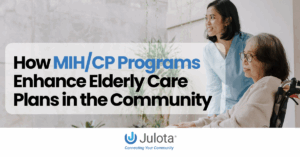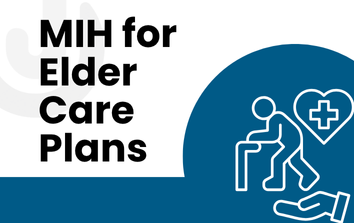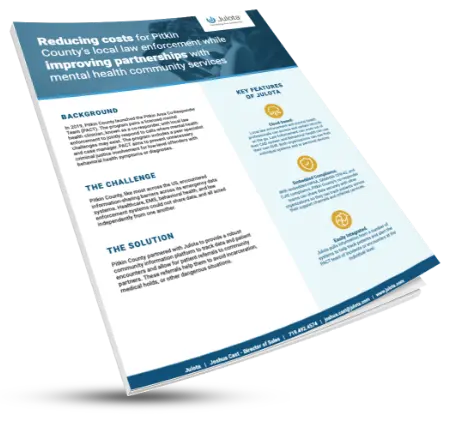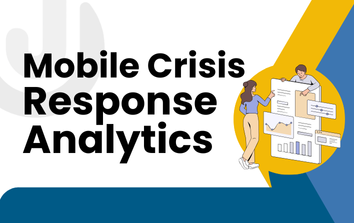MIH-CP programs can assist elderly care plans by fulfilling some of the most essential needs of those in later life. Some of these needs include filling prescription medications, improving their personal environment, preventing social isolation, and creating a better health network where their providers are connected.

How Do MIH-CP Programs Implement Elderly Care Plans?
The golden years of someone’s life should be just that: golden. Too many times, people in older age find that their care continues to wane, and that their health begins to spiral out of control faster and faster. Of course, there are age-related health changes that everyone deals with at some point.
The motive of MIH-CP or any other elderly care program is not to go against nature, but rather to help people age in place with grace, dignity, and comfort. In the following few sections, we’ll discuss how MIH-CP allows people to do just that.
Here’s how Mobile Integrated Healthcare for Elderly care plans:
- Assist with Medication Fulfillment and Monitoring
- Improve the Elderly Person’s Home Environment
- Create a Better Landscape for Care at Home
- Assist with Older Adults who Experience Loneliness and Social Isolation
- Provide Holistic Help Related to Nutrition and Exercise
We’ll go over these in a little more detail now.
Assisting with Medication Fulfillment and Monitoring
Medication management is an often-overlooked point of medical care. How hard can it be to take a medication? What’s the big deal?
Well, taking a single medication might not be a big deal. If you’re prescribed an antibiotic for an infection, you take the antibiotic for a few weeks, and you’re done. No big deal. However, it’s a little different with a chronic disease.
With a chronic disease, patients have medications that they need to take for a long time – sometimes, for the rest of their lives. Not only that, but if they don’t take them or even miss a day, they could end up with adverse side effects. Furthermore, they are usually taking many more than a single medication, with some patients taking dozens.
There’s even a name for people who are trying to manage a lot of (sometimes, too many) medications: polypharmacy.
Finally, many of these medications can be dangerous if taken incorrectly or if taken too often. For all these reasons, community paramedics are in a good position to help.
For one thing, community paramedics can document which medications a patient is taking and actually visit their home to verify that they are taking these medications correctly. Not only that, but community paramedics can help patients with medication storage areas. It could be that they have trouble seeing due to poor vision; in this case, community paramedics might provide someone with a larger medication container to help them see.
Alternatively, it could be that the patient is unable to leave their house to obtain a necessary prescription. In this case, the community paramedic may be able to fulfill it for them or arrange for delivery.
Mobile Integrated Healthcare-Community Paramedicine Assists Elderly Care by Improving the Elderly Person’s Home Environment
Another way community paramedics can impact elderly care plans is by providing home assessments and improving the physical environment. Many people don’t realize how dangerous something like a fall can be to an older adult. Community paramedics can partner with elder care services to deliver much-needed support.
Community paramedics work to prevent falls by looking out for obvious trip hazards (such as thresholds and rugs) and by strategically installing handrails in places like the kitchen, bathroom, and hallway. And by ensuring that all walking paths are clear of obstructions and have ramps when needed.
Even though physicians routinely make environmental recommendations, they are often powerless to follow through. However, the community paramedic can go into a person’s home and make sure they have a truly safe environment in which to live.
Mobile Integrated Healthcare-Community Paramedicine Improves Elderly Care by Creating a Better Health Network for Care at Home
For those who have significant health concerns, it’s almost a full-time job trying to figure out what they need to do. You’ve got appointments that need to be scheduled, you’ve got medications that expire and must be refilled, a thousand different specialists who need information, not to mention trying to follow all the orders from the physician.
With all these things that people are trying to maintain, it’s no wonder that many of them fall behind. Or worse – they give up altogether. This is a sad fact in all societies, and while there is undoubtedly a responsibility on the part of the patient, the medical community at large needs to take a long, hard look in the mirror.
While we all might draw different conclusions from this introspection, there is one thing that remains universally true: we are too divided. There is no good reason why branches of healthcare shouldn’t be more coordinated and cooperative in their efforts to care for a typical patient.
So how can community paramedicine help? By necessity, community paramedics must operate within a collaborative system. This means they must use a system that can share information with multiple members of the healthcare community. They can’t just store data for themselves – they have to work from a common patient record.
Many teams use advanced yet intuitive tools like Julota, allowing them to safely and securely store and track data, and act as the “hub” around which the patient receives much of their care. Instead of constantly printing and sharing paperwork in yellow envelopes, using an interoperable platform like Julota can lead to much more fluid cooperation and care for patients.
Hopefully, in the years to come, this method of coordinated care will be further adopted across the entire healthcare sector. There is a long way to go, of course. But as they say, every step counts.
Assisting with Older Adults who Experience Loneliness and Social Isolation
Loneliness isn’t typically thought of as a medical issue. We all, from time to time, will be a bit lonely. Isn’t this part of being human? Let’s talk about it.
Indeed, experiencing times of loneliness is a regular part of life. The problems start when this loneliness becomes a long-term issue – or chronic loneliness. When this happens, and a person has no hope of being surrounded by people they can trust, we start to see the adverse health effects. And the effects are not only social and psychological, but they are also physical.
Those who are lonely are more likely to struggle with mental health ailments, such as depression. Not only that, but lonely people often have a greater number of chronic health issues. Some of this is from the stress of being isolated, but it also comes from the practical concerns: when you don’t have family or friends around, you have fewer people who can help you if you need it.
Not only that, but having people you love around can give you something to fight for – a reason to continue fighting the good fight and taking care of your body.
But how can community paramedicine help those who are vulnerable to loneliness? There are a few ways. First, they can’t work miracles. They can make suggestions about how people might engage with more people and create a stronger social network, but they can’t force anything on the person.
What community paramedics can do is help someone by trying to balance their life. That means they can check in on people and ensure that they have what they need. They can also fill some of the roles that family and friends might typically play by coordinating transportation, refilling medications, and arranging for the patient to have regular meals.
Conclusion: The Many Ways Community Paramedics Support Care Plans for the Elderly
Mobile Integrated Healthcare-Community paramedicine can make significant inroads when it comes to care plans for older people. Many times, people in this stage of their life feel like they are juggling a million things – and now they are losing physical strength, mental clarity, and the ability to travel.
Community paramedics help by mitigating some of these losses and assisting people where needed. Some of the most common ways they can assist include helping people with their medications, ensuring that nothing gets missed with their vital signs, and rallying their support team around them.
One of the most significant ways community paramedicine can support these patients is by establishing a robust network behind their healthcare team. This means that instead of their providers being isolated (and not on the same page), their physicians, mental health providers, and physical therapists are all on the same page.
If you feel like your community could use an improved Mobile Integrated Healthcare for elderly care plans, contact Julota to see how their platform can help bring people together, leading to many brighter days for people living in the best years of their lives.
Author
-

Noah Weinberg is a Marketing Associate at Julota, where he focuses on elevating the alternative response space, specifically Mobile Integrated Healthcare (MIH), Community Paramedicine, and co-responder models. He writes about the intersection of law enforcement, healthcare, and community well-being, drawing on real-world experiences with community paramedicine programs in Ontario, Canada.





